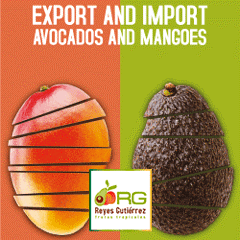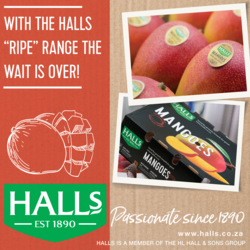Mango supply
- Published on 4/05/2020 - Published by GERBAUD Pierre
- Free
In the context of the health crisis
Informations
- Product(s) : Mango
- Rubrique / Thématique : Direct from the markets
- Country : Cote-d'ivoire , Peru
- Keywords : Export , Import , Price , Production
The current health crisis is hitting mango supply and distribution hard, as with other fresh produce. In consumer countries, the lockdown measures initially slammed the brakes on mango consumption. The suspension of street markets, the closure of many stores and reduced procurement by the big supermarket chains contributed to putting consumers off this fruit. Since the mango is not a core product, consumers naturally switched to a more basic range, favouring grocery products over fresh produce. Conversely, the longer-lived banana or avocado did not see the same downturn. Gradually becoming accustomed to the lockdown conditions, customers have bit by bit returned to more usual modes of consumption, thanks in particular to the supermarket sector, the only one still accessible to the majority. Hence mango consumption picked up in the run-up to the Easter holidays. Availability of large quantities of sea-freight Peruvian mangos also made a big contribution. Conversely, the air-freight mango slot was and remains distinctly more disrupted. The dwindling availability of “passenger” air services considerably restricted flows, leading to complex logistical gymnastics. They rapidly caused substantial price increases, in turn aggravating the scarcity of the supply. Prices have now reached 3 euros/kg gross, as opposed to 1 euro/kg in normal times for the Côte d’Ivoire origin, according to Vincent Soler from Capexo. The immediate consequence was a surge in air-freight prices to unprecedented levels.
The health crisis arrived in Europe just as the Peruvian campaign was ending. In this transition period with the West African origins, the health crisis adopted another configuration. The start, already late for weather reasons in the production zones, deferred the first shipments. They were also curbed by the limited air-freight capacities. Yet while the crisis had repercussions on consumption, it also had some on the producer countries. With the uncertainty over procurement, a number of importers cancelled or scaled back their programmes for the West African campaign. Finally, in the producer countries, the measures taken as part of the Covid-19 pandemic represent obstacles to the export sector. Traffic restrictions, safety measures in the packing stations, the curfew implemented in certain countries or regions are all obstacles to achieving the planned export programmes. All these conditions could have consequences on the results of the West African export campaigns, especially since in spite of everything the outlets remain haphazard.







